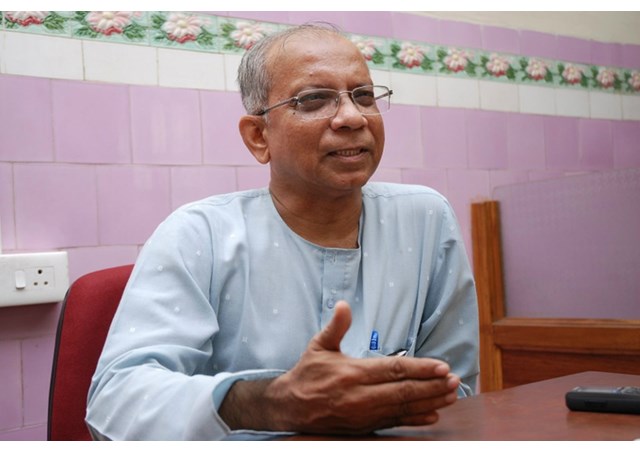
An Indian Jesuit priest and fearless human rights activist has moved to Beirut, Lebanon, to render his services to refugees. Fr. Cedric Prakash a well-known human rights and peace activist, who headed the human rights centre in Ahmedabad, Gujarat state, called “Prashant” is working among the thousands of internally displaced people. In his new mission, the 65-year old Jesuit will be coordinating the `universal mission’ of the Jesuit Refugee Service (JRS) for Syria, Jordan, Egypt, Palestine, Israel, Sudan and Chad.
In his new mission to JRS Fr. Prakash said, "The refugee crisis in the Middle East and North Africa region (MENA), especially in the light of ISIS today cannot be seen in isolation of powerful lobbies and other vested interests. There is very little political will. The arms and ammunition industry plays a crucial role in MENA and so do mercenaries of every hue." His work involves ensuring that refugees are accorded the rights guaranteed by the 1951 Geneva Convention.
Fr. Prakash said that it was during his visit to Lebanon in July 2015 that he finally made up his mind about Beirut. He noted that in 1974 he was inspired by Fr. Pedro Arrupe, the former Jesuit Superior General, who worked among Vietnamese boat refugees. Fr. Arrupe began the JRS in 1980.
Since the 2002 Gujarat riots, he has been a relentless critic of Narendra Modi the then chief minister of Gujarat and now Indian Prime minister, over his alleged role in the riots. He had spearheaded the campaign against Gujarat’s new anti-conversion law ‘The Gujarat Freedom of Religion Act 2003’, which he later challenged in 2009 in the high court. "Our fight here in Gujarat is not over. We will fight for the values enshrined in our Constitution and will carry on the struggle for the marginalized and victims of violence," said Fr. Prakash.
The priest has received several national and international awards which include the Kabir Puraskar by the President of India in 1995 for harmony, Chevalier de la Legion Honneur (Knight of the Legion of Honour) by the French President in 2006 for human rights causes as well as the Indian government’s Minority Rights Award. (Source: UCAN)



